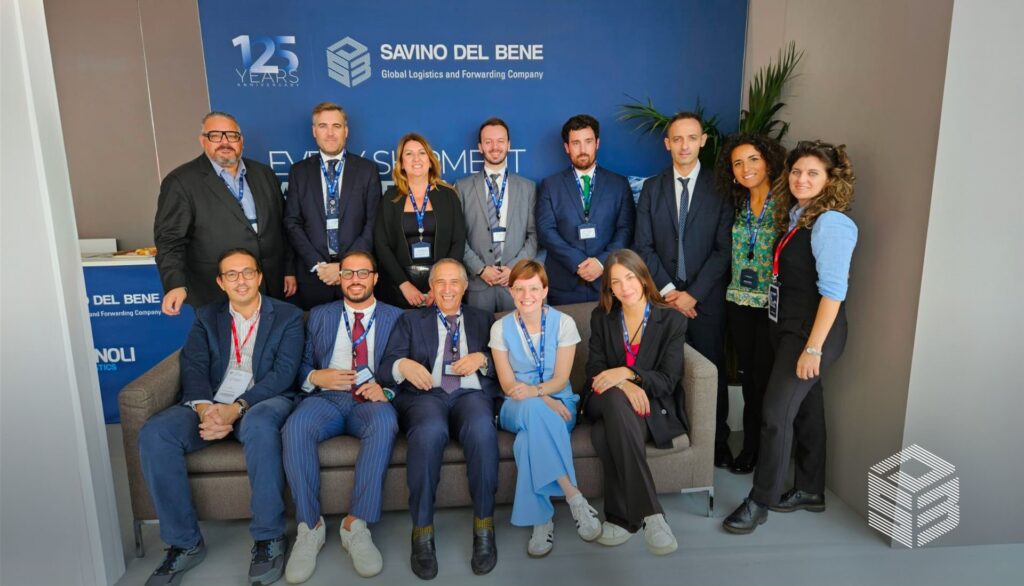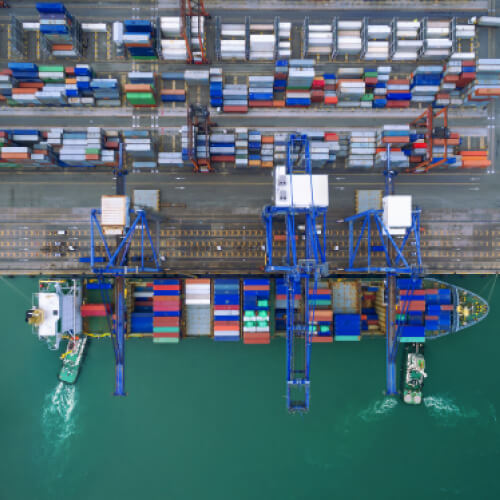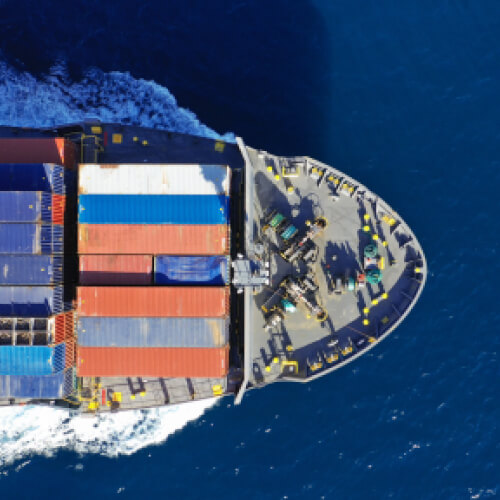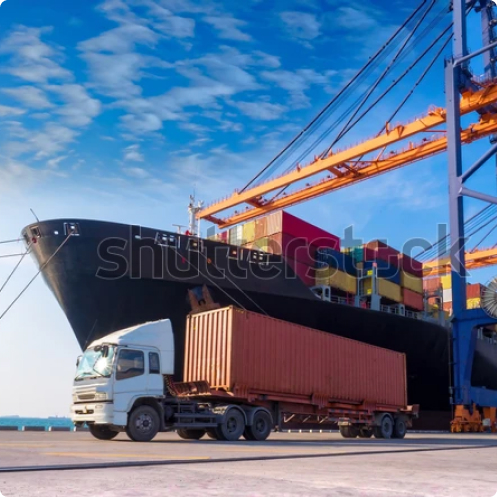In the context of global trade and international shipping, the role of the freight forwarder is often crucial. Whether it’s small business owners looking to expand their markets or large multinational companies that need to manage complex logistics flows, the freight forwarder becomes indispensable to ensure goods reach their destination safely, on time, and efficiently.
But what exactly is a freight forwarder? What kind of services do they offer? And why can collaborating with a freight forwarder make a difference for your business? Let’s delve deeper into this article by Savino Del Bene.
What is a freight forwarder?
A freight forwarder is an intermediary who organizes the shipment of goods on behalf of third parties. Their primary task is to facilitate the transport of goods from the point of origin to the point of destination, coordinating all logistical and administrative aspects involved in the process. The freight forwarder does not physically own the means of transport but works with a network of carriers, airlines, shipping companies, and truckers to ensure goods arrive safely and efficiently.
What does a freight forwarder do and what services do they offer?
The activities of a freight forwarder cover all phases of the logistics chain, from initial planning to the final delivery of goods. Here is an overview of the main services offered by a freight forwarder like Savino Del Bene.
Ground shipping
Ground shipping is ideal for short and medium-range transport. The main ground shipping services include route planning, coordination of transportation through collaboration with trucking companies for loading and unloading goods, and load consolidation, which allows for grouping small loads to optimize costs. Additionally, they handle customs procedures, preparing the necessary documentation for the transit of goods, and monitor shipments, tracking them through advanced systems for real-time updates.
Sea shipping
Ocean shipping is essential for international trade of large volumes. The main sea shipping services include container booking and scheduling ship departures, ensuring that goods are ready for boarding on time. Additionally, they take care of transport documentation, preparing bills of lading and other essential documents, and manage port operations, overseeing loading and unloading activities at ports.
Air shipping
Air shipping is ideal for fast and urgent transports. The main air shipping services include booking the most suitable flights. They also handle shipment consolidation, grouping small shipments to optimize costs, and preparing the necessary documentation. Additionally, they manage customs formalities, coordinating with authorities for quick clearance, and offer door-to-door delivery services, ensuring that goods arrive directly at their final destination.
Additional Services
In addition to shipping services, freight forwarders offer customs assistance, helping clients avoid penalties and delays. They also provide integrated logistics solutions, covering all aspects of the supply chain, from procurement to distribution, and manage insurance policies on goods to cover any risks during transport. Moreover, they implement advanced IT solutions to enhance control over logistics operations, such as real-time tracking systems and supply chain management platforms.
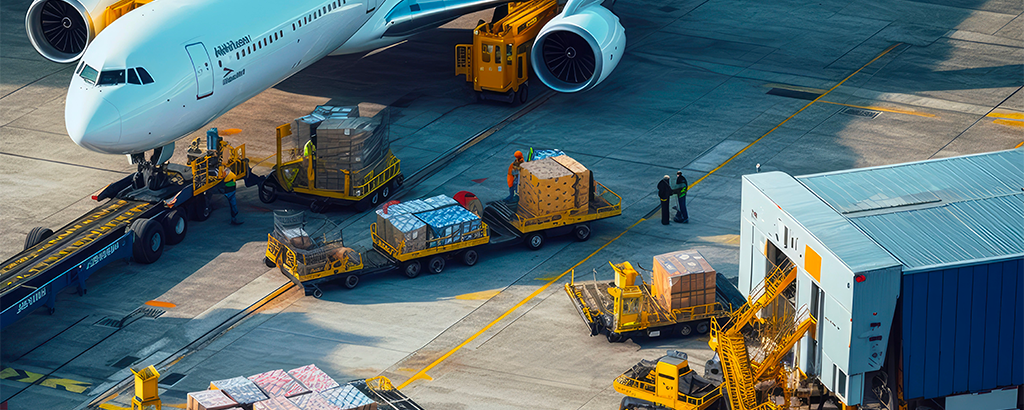
Difference between freight forwarder, carrier, courier, and broker
Those who are not familiar with logistics and international shipping often end up confusing the terms “freight forwarder,” “carrier,” “courier,” and “broker,” using them interchangeably by mistake. In reality, these are four distinct roles with specific responsibilities and functions: let’s see what they are.
What is a freight forwarder: definition and main functions
As mentioned, a freight forwarder is an intermediary who organizes the transport of goods on behalf of their customers. This professional does not own transport means but works in collaboration with a network of carriers, airlines, shipping companies, and truckers to ensure goods are transported efficiently and safely. The main responsibilities of a freight forwarder, therefore, are consultancy, logistics planning, and management of documentation.
What is a carrier: definition and main functions
The carrier is the entity that physically performs the transport of goods. This can be a trucking company, an airline, or a maritime shipping company. Unlike the freight forwarder, the carrier owns and operates the necessary transport means to move goods. The main responsibilities of a carrier, therefore, consist of performing the transport itself, as well as managing safety and compliance with regulations.
What is a courier: definition and main functions
The courier is an operator who handles the rapid delivery of packages and documents. Typically, couriers operate on a national or international scale and specialize in express delivery services. The main responsibility of the courier, therefore, is door-to-door delivery.
What is the broker: definition and main functions
The broker is an intermediary whose task is to facilitate agreements between the parties. Unlike the freight forwarder, however, the broker does not directly manage the transportation of goods, but focuses solely on the negotiation and facilitation of contracts between the customer and logistics service providers. The broker’s main responsibilities involve negotiating rates, providing contractual assistance, and offering strategic advice.
Freight forwarders, carriers, couriers, and brokers: comparison table
In summary, while the freight forwarder acts as a coordinator who facilitates the shipping process, the carrier is the entity that performs the physical transportation of goods, the courier specializes in the rapid delivery of packages and documents, and the broker focuses mainly on negotiating and facilitating contracts between customers and logistics service providers. Here is a brief summary table:
| Role |
Definition |
Main Functions |
| Freight forwarder |
Intermediary who organizes the transport of goods on behalf of third parties |
Logistics coordination, document management, choice of carriers |
| Carrier |
Operator who physically performs the transport of goods |
Movement of goods by land, sea, or air |
| Courier |
Company or person who performs rapid and direct deliveries of packages and documents |
Rapid transport and door-to-door delivery of small packages |
| Broker |
Intermediary who facilitates agreements between customers and logistics service providers |
Negotiation of rates, contractual assistance, relationship management |

What are the advantages of working with a freight forwarder?
Are you thinking of relying on an international freight forwarder? Collaborating with such operators offers numerous advantages, which go beyond the simple organization of transport:
- Experience and market knowledge: freight forwarders have a deep understanding of transport routes, international regulations, and customs practices, reducing the risk of delays and complications;
- Cost optimization: thanks to their networks and established relationships, freight forwarders can negotiate better rates with carriers and optimize transport costs;
- Emergency management: in case of unforeseen events or emergencies, an experienced freight forwarder can quickly find alternative solutions, ensuring continuity of transport operations;
- Customized services: freight forwarders offer tailor-made solutions to the specific needs of their clients, adapting transport services to the characteristics of goods and market demands;
- Reduction of administrative burden: by entrusting the management of documentation and customs procedures to a freight forwarder, companies can focus their resources on core activities, reducing the internal administrative burden;
- Access to advanced technologies: freight forwarders use advanced software and tracking systems that allow monitoring shipments in real-time, improving visibility and management of logistics operations.
Conclusion
In conclusion, the freight forwarder plays a crucial role in the world of international shipping, facilitating the flow of goods through efficient and professional management. If you are looking for a reliable partner for your transport needs, Savino Del Bene is the right choice for you. Contact us to find out how we can support your business with tailored logistics solutions for your activities.



